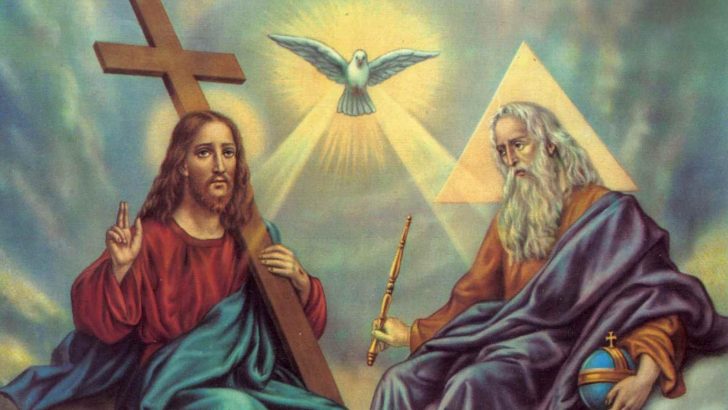Questions of Faith
In the last few decades there has been a resurging belief within popular culture and even among Christians that God created Jesus – and this is no small number.
A survey conducted by Lifeway Research a few years ago, which interviewed 3,000 Americans about their theological views, revealed that 78% believed that ‘Jesus was the first and greatest being created by God the Father’.
Although the study was geographically limited and had an evangelical slant, it certainly offers an insight into how people understand God the Father and Jesus.
That so many people believe that Jesus was created ought to startle religious and lay Catholics alike, given how such an old heretical idea is thriving today.
The Arian heresy, named after a priest called Arius, tore apart the Church in the 4th Century as it promulgated the idea that Jesus was created by God rather than actually being God. It received a lot of traction among bishops, even after it was quashed by the Nicene Creed in 325AD.
In it, Catholics recite that they believe in one Lord Jesus Christ who is “begotten, not made, consubstantial with the Father”. This sounds like a very convoluted and confusing phrase, but because it’s important to be precise when talking about God, the right words need to be used.
Behind this fancy language, what Catholics are saying is that Jesus was not made by God – if that was the case, we’d be worshipping a creature rather than God.
But you’ll notice that although Jesus was not made, we do describe his origins as ‘begotten’, so what’s the difference? Put simply, one can make or create something but this creation doesn’t necessarily share in the nature of the creator.
For example, you can bake a cake or paint a great masterpiece but these things you have created don’t share in your nature. They’re extrinsic or outside of you and your being.
However, by using the word ‘begotten’, what we are really saying is that God begets Jesus – that God and Jesus share the same nature and have done so for eternity.
This is reinforced when we describe Jesus as “consubstantial” with the Father. The Greek word homoousious means “of the same substance” and drives home the point that Jesus and God the Father, along with the Holy Spirit, possess the same divine nature. In a very roundabout way, the Nicene Creed is simply affirming that God the Father and Jesus are one (John 10:30) meaning there was never a time where Jesus did not exist as God.
The Catechism of the Catholic Church puts it like this: “Jesus revealed that God is Father in an unheard-of sense: he is Father not only in being Creator; he is eternally Father in relation to his only Son, who is eternally Son only in relation to his Father” (240).
It’s an intricate teaching to get your head around, and theologians over many centuries have tried to explain it in more lucid or imaginative ways.
Despite the complexities, you can be sure that Jesus is not a creature but shares in the same nature as God.











 Colm Fitzpatrick
Colm Fitzpatrick

